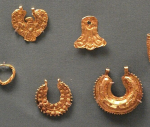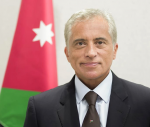You are here
Jordan-Israel ties
Nov 04,2014 - Last updated at Nov 04,2014
Jordan-Israel relations are under pressure as the two countries mark the 20th anniversary of their peace treaty.
While Israeli officials praised ties with their eastern neighbour — Defence Minister Moshe Ya’alon talked about the “strategic alliance” with Amman, especially over security issues — the mood in Jordan was different.
His Majesty King Abdullah warned last week against the fallout of repeated Israeli violations of Muslim and Christian sacred places in Jerusalem, especially Al Aqsa Mosque.
On Sunday, he told parliamentarians that Jordan will “continue to confront, through all available means, Israeli unilateral policies and measures in Jerusalem and preserve its Muslim and Christian holy sites”.
Last Thursday, Israel closed the mosque for the first time since the Old City fell to occupying forces in June 1967. The closure, which was later lifted, came at the peak of almost daily provocations by Jewish extremists aimed at Muslim worshippers and at Al Aqsa itself.
Jordanian officials said the closure was revoked after the personal intervention of King Abdullah. Islamic Affairs Minister Hayel Dawood denounced Israel for “closing the gates of Al Aqsa Mosque and preventing the faithful from entering”, while describing the action as “state terrorism”.
Government spokesman Mohammad Momani said the peace accord with Israel is under threat if violations of Al Aqsa Mosque continue.
He echoed statements made by Jordan’s ambassador to Israel, Walid Obeidat, earlier last week, when he warned that Israeli settlement building on Palestinian territories and attempts to change the status quo of Al Aqsa Mosque compromise the peace treaty between the two countries.
The strain in relations is understandable.
Under the 1994 peace treaty, Jordan maintains a special role in the Old City of Jerusalem, especially in protecting Muslim holy sites including the Noble Sanctuary where Al Aqsa Mosque stands.
Jewish extremists that call the area Temple Mount want to destroy the mosque and erect a Jewish temple on its ruins.
For now, right-wing deputies in the Knesset are trying to pass a law that would undermine Jordan’s role and permit access to the mosque to Jewish worshippers.
Jordan and the Palestinian Authority reject such plans.
While Israeli Prime Minister Benjamin Netanyahu said that the status of the Muslim shrine will not change any time soon, his government has allowed Jewish extremists to enter the site, provoking worshippers and leading to intermittent clashes between Palestinians and Israeli soldiers.
But it is clear that continued provocations in Jerusalem burdened Israeli relations with Jordan.
The government has come under pressure locally for failing to take stern action against Israel.
Islamists, secular parties and activists expressed anger at Jordan’s failure to stop Israeli threats. Foreign Minister Nasser Judeh warned that Jordan will resort to legal action to put an end to Israeli violations.
Last week, as a non-permanent member of the Security Council, Jordan called for an urgent meeting to discuss Israeli plans to build more Jewish settlements in Arab East Jerusalem.
Netanyahu defended his decision to build 1,000 units in what he described as Israel’s capital.
The Jordanian move, although symbolic, underlined Amman’s frustrations with Israeli actions in Jerusalem.
After 20 years, most Jordanians remain critical of the peace treaty with Israel. Outside government circles and former key officials, one is unlikely to find anyone who would defend it.
Those who do, like former prime minister Abdul Salam Majali who led the negotiations with Israel, point to the treaty’s strategic benefits, including the demarcation of borders between Jordan and Israel, recognition of Jordan’s special role in East Jerusalem, securing the Kingdom’s water share from Lake Tiberias and ensuring the flow of billions of dollars in US aid to Amman.
While civil organisations in Jordan led successive campaigns to prevent normalisation of relations between Jordan and Israel, on the official side such ties have grown stronger, especially over security.
And most recently, and despite heavy criticism by local commentators, deputies and political parties, Jordan and Israel signed an agreement under which the latter would provide the Kingdom with most of its needs of natural gas.
The $15 billion deal would meet Jordan’s increasing energy requirements over the coming 15 years.
Those who are critical of the deal say it will make Jordan increasingly dependent on Israel and affect its political decisions, especially over the Palestinian cause.
Despite the “cold peace” between them, Jordan and Israel have forged a strong relationship that goes back decades. But ties have seen better times, especially in the first few years after the signing of the peace treaty because of the special relationship between King Hussein and prime minister Yitzhak Rabin.
Both men had a shared vision for a region where Jordan, Israel and Palestine could thrive and work together.
That vision was shattered after Rabin’s assassination in 1995.
On the other hand, relations between the two countries were tested for the first time when Mossad agents made an attempt on the life of Hamas leader Khaled Mishaal in Amman, in 1997.
King Hussein threatened to terminate the peace agreement unless the government of then prime minister Netanyahu deliver the necessary antidote and release key Hamas leaders. Netanyahu caved in.
Now once more it is with the Netanyahu government that Jordan is frustrated.
The threat to Al Aqsa is real and any change to its status will be considered an affront to Jordan and to the Hashemites, who have maintained a special role in Jerusalem for decades.
The writer is a journalist and political commentator based in Amman.













